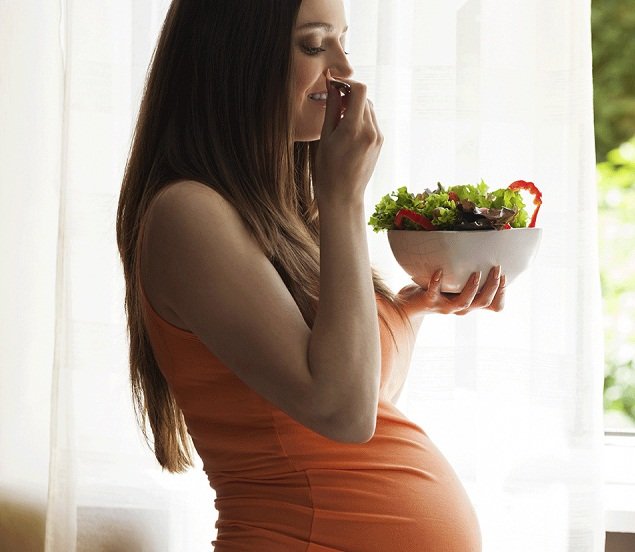Pregnancy Nutrition – Nutrition is not to be confused with “diet”. Getting the right form of nutrition is very important during your pregnancy. Going on a “diet” is not something to be concerned about at this vital time of your unborn child’s life. (Explanation: I am using “diet” to describe the action taken to lose weight and the word diet, without punctuation, to describe the plan you have to consume your nutrition.)
When it comes to pregnancy nutrition and eating healthy, you are responsible to give this child the nutrition that it needs to develop to its maximum potential.
The Director of Obstetrics from Mount Sinai Hospital in New York, Dr. Keith Edelman, shares with us some valuable information on what to eat and what not to eat during pregnancy in this video https://www.youtube.com/embed/qefWfqcaOGo?rel=0 .
If you are overweight to obese at the time that you become pregnant it is not advised that you try to diet. That does not mean that you can’t change some of your eating and exercise habits. Altering your diet to be more nutritious is not the same as going on a diet.
If you are thinking about or trying to get pregnant it would be a wise and responsible decision to consider going on a diet to rid yourself and your baby of the possible complications that could arise because of excess weight. A weight that would bring your BMI to be 25 -30 would be acceptable to most doctors as a safe weight to carry during your pregnancy.
In this article we are going to learn about:
- Calories
- Weight gain
- Nutrients
- Minerals
1. Calories
On a basic level, calories are just a measure of energy, and thus, when this is applied to food, they signify the amount of energy you’re able to get out of a certain food type.

2. Weight Gain
Most of the weight that you gain during pregnancy is not fat. There is, obviously, the weight of the baby as well as extra stored proteins and extra blood. Some other changes going on in your body such as breast enlargement, uterus enlargement, placenta, and amniotic fluid surrounding the baby are accountable for additional weight gain.
Must Read: How to Lose Baby Weight After Pregnancy
3. Nutrients
Nutrients are used to build and repair tissues, regulate body processes and are converted to and used as energy they include:
Protein – or amino acids, has a number of roles to include cell production, production of blood, creation of various hormones and antibodies. If you are not getting enough protein, your body may have trouble supplying your baby with the protein necessary for its growth. Pregnant women only need to increase their protein by 10 grams.
Some of the most common sources of protein include lean meats, poultry, fish and dairy products. If you are vegetarian, your primary source of protein would be milk and eggs and for a vegan diet it would be soy. For a sweet choice of protein try peanut butter.
Carbohydrates – your main source of energy. Your baby’s main source of energy. Carbohydrates are also important to other bodily functions such as blood clotting, the immune system and cell communication. Great sources are: whole grains, fruits, vegetables, and dairy products. Roughly the recommended intake would average out to be about 175 grams of carbohydrates per day, for pregnant women.
Fats – for the most part are a large energy source. But for pregnant women there is another consideration to be made, ‘Essential fatty acids’. Essential fatty acids are not produced by the body and therefore must be obtained through the diet.
Some of these essential fatty acids are crucial for the baby’s development, and are used in a variety of functions that range from transporting vitamins, to developing the nervous system. There are many varieties of fats but you want to concentrate on ‘unsaturated fats’.
These can be found in fish, nuts and flaxseeds, to name a few. One particular fat, known as DHA, is an omega-3 fatty acid which has been shown to play a huge role in the development of baby’s brain and eyes. The best source would be oily fish. The recommended intake of DHA is 200 milligrams daily.
4. Minerals
The chemical elements required by living organisms. There are a lot of minerals out there and we will cover the most important for pregnant women.

Calcium – is required to grow bones and teeth as well as helping with the production of fluids for the lymphatic system. Sources of calcium are dairy products, such as, milk, yogurt, kefir and cheese. Or dark green leafy vegetables.
Calcium enhanced juices and cereals are also available sources. You should be getting about 1,000 mg of calcium a day through out your pregnancy. Keep in mind that you are going to need Vitamin D to aide in the absorption of the calcium.
Iron – the most well know function of iron is its role in helping to carry oxygen through the blood and delivering it to the entire body. It also plays a large role in the immune system, metabolism, body temperature regulation and brain development.
For your baby, in particular, iron is necessary in the development of the circulatory system. The recommended quantity of iron intake for pregnant women is about 27 mg. The best sources of iron include red meats, poultry, fish, dark green leafy vegetables, eggs. Vitamin C helps to increase the absorption of iron.
During pregnancy these are definitely the minerals that you want to be absolutely certain that you are taking enough of. Be aware though, that, as part of a balance diet, you should be consuming more than just these minerals.
Thanks for reading. What do you think about this topic? Leave your questions, comments, suggestions and/or thoughts below!









